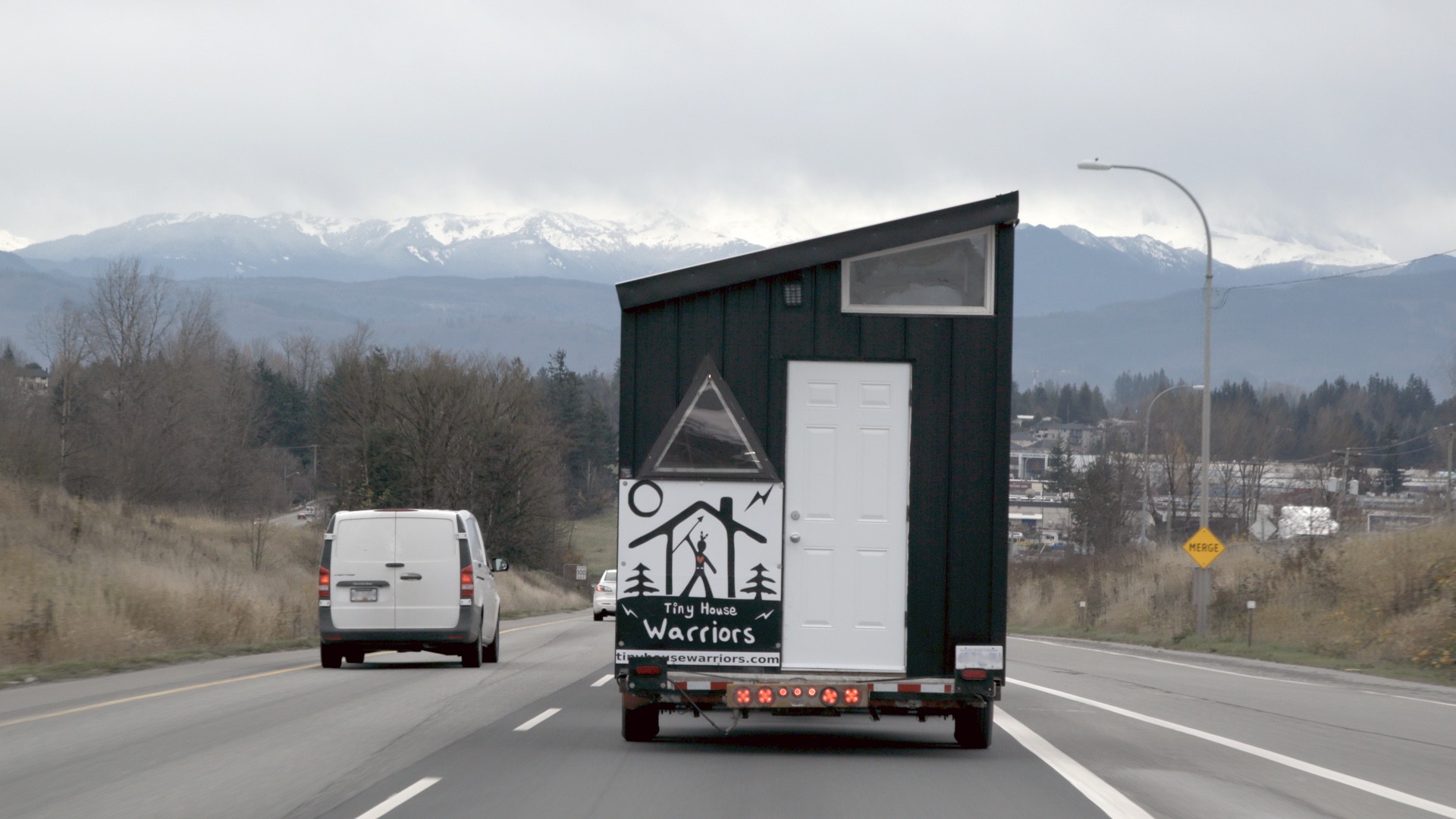An RCMP helicopter seen above Wet'suwet'en First Nation following a January 2019 raid. Photo by Chad Hipolito / The Canadian Press
The RCMP has denied using drone and flyover surveillance at Wet’suwet’en First Nation sites in response to fears that increasing police presence in the area could lead to an armed raid.“We are not using drones or doing flyovers,” RCMP Sergeant Janelle Shoihet told VICE by email Wednesday. “I am sure you can appreciate there is a great deal of misinformation and claims being made around our efforts, which are completely false.”The denial comes one year after a paramilitary-style RCMP raid removed 14 land defenders from a Wet’suwet’en camp, and one week after Wet’suwet’en hereditary chiefs attempted to evict police and pipeline workers from their land.Wet’suwet’en hereditary chiefs are asserting right and title over a 22,000-square-kilometre territory despite a natural gas company’s plan to build a $6.6 billion pipeline through it. On Monday, the RCMP established an “access control checkpoint” on the road leading to Wet’suwet’en camps, kicking off speculation that the cops would enforce a B.C. court-ordered evacuation.“This is exactly what they did the last time before they raided,” Molly Wickham, a spokesperson for one of five Wet’suwet’en clans, said in a Facebook live video posted Monday.Wet’suwet’en representatives first reported flyover and drone sightings in a press release calling for United Nations monitoring on Monday. VICE has since viewed five photos of helicopters and planes taken above Gidimt’en camp, though operators of the aircraft remain unclear. Gidimt’en representative Jennifer Wickham told VICE one plane circled the camp four times on Wednesday alone.RCMP issued a statement Wednesday afternoon pushing back on raid speculation and claims that the checkpoint amounted to an “exclusion zone.” RCMP Superintendent John Brewer said more police are on the ground to help missing and stranded people, not to enforce an injunction that ordered Wet’suwet’en members and supporters to leave by January 10.“At this point, we are not enforcing the B.C. Supreme Court injunction to allow time for dialogue between the Wet’suwet’en Hereditary Chiefs, Elected Councils, Coastal GasLink and Government,” Brewer said in the statement. “The access control checkpoint is a measured response that reflects the need to prevent further escalation of the situation.”Brewer, the operations commander for an industry-community response group, addressed some of the conflicts between police and Wet’suwet’en members stopped at the roadblock.On Wednesday, the B.C. Civil Liberties Association announced it filed a legal complaint on behalf of two Wet’suwet’en members who weren’t allowed to deliver supplies to land defenders camping in dangerously cold weather. BCCLA executive director Harsha Walia called the checkpoint arbitrary, excessive, and punitive during a press conference Wednesday afternoon.“The Wet’suwet’en assert continuous jurisdiction and unextinguished rights and land title, and the Charter protects liberty, mobility, freedom of the press, and the right not to be arbitrarily detained,” she said. Brewer said “miscommunication” led cops to turn away people carrying food and winter supplies. “The procedures have since been clarified and we have not had any reports of further issues and most individuals have been able to proceed,” he said.While Wet’suwet’en supporters say they see cops as a major safety threat given reports of “lethal overwatch” during the January 2019 raid, the RCMP says several other hazards “could result in significant injury or death.” Brewer pointed to fallen or partially cut trees, and “stacks of tires with accelerants” seen along the Morice West access road.Last week the RCMP released photos of motor oil, diesel, and kindling sitting among piles of tires.“Twice now, police officers removed the containers of accelerants to prevent fires and both times they were replaced,” Brewer said. “The intent here is concerning and we are continuing our criminal investigation on this matter.”Follow Sarah Berman on Twitter.
Brewer said “miscommunication” led cops to turn away people carrying food and winter supplies. “The procedures have since been clarified and we have not had any reports of further issues and most individuals have been able to proceed,” he said.While Wet’suwet’en supporters say they see cops as a major safety threat given reports of “lethal overwatch” during the January 2019 raid, the RCMP says several other hazards “could result in significant injury or death.” Brewer pointed to fallen or partially cut trees, and “stacks of tires with accelerants” seen along the Morice West access road.Last week the RCMP released photos of motor oil, diesel, and kindling sitting among piles of tires.“Twice now, police officers removed the containers of accelerants to prevent fires and both times they were replaced,” Brewer said. “The intent here is concerning and we are continuing our criminal investigation on this matter.”Follow Sarah Berman on Twitter.
Advertisement
Advertisement

